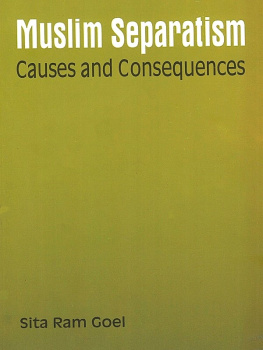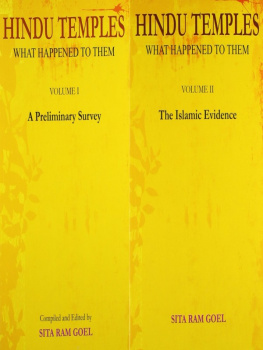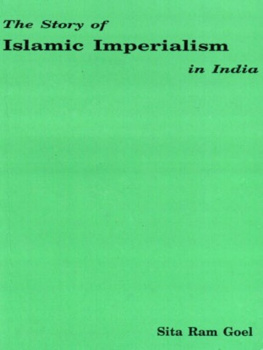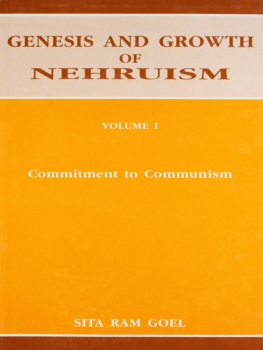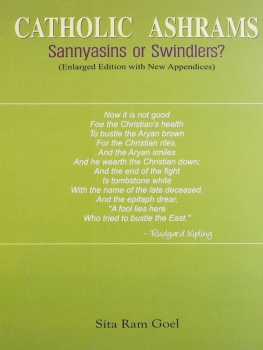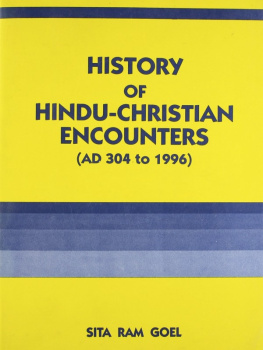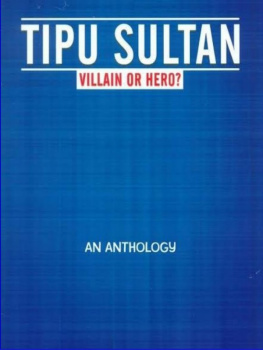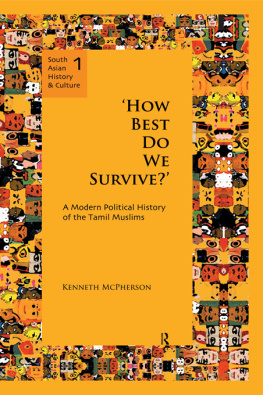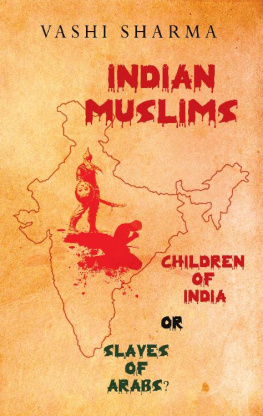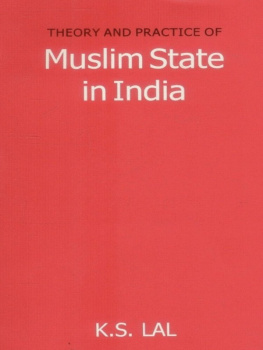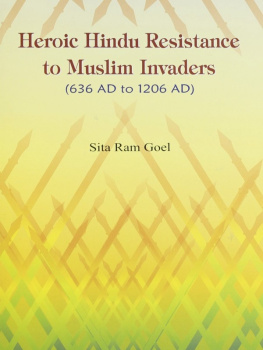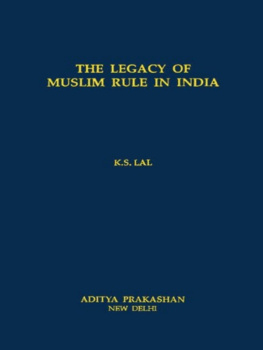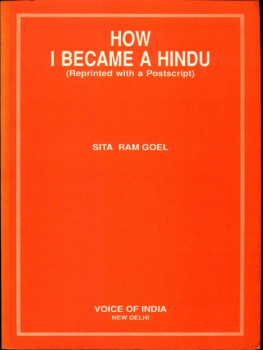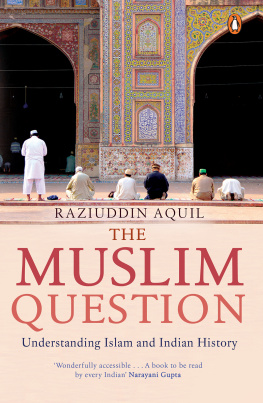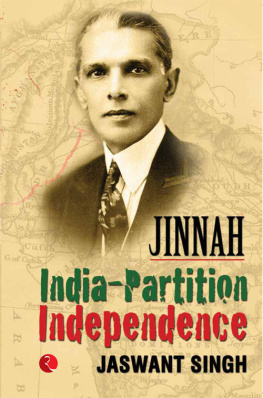Muslim Separatism
Pages
Muslim Separatism
This book was produced in EPUB format by the Internet Archive.
The book pages were scanned and converted to EPUB format automatically. This process relies on optical character recognition, and is somewhat susceptible to errors. The book may not offer the correct reading sequence, and there may be weird characters, non-words, and incorrect guesses at structure. Some page numbers and headers or footers may remain from the scanned page. The process which identifies images might have found stray marks on the page which are not actually images from the book. The hidden page numbering which may be available to your ereader corresponds to the numbered pages in the print edition, but is not an exact match; page numbers will increment at the same rate as the corresponding print edition, but we may have started numbering before the print book's visible page numbers. The Internet Archive is working to improve the scanning process and resulting books, but in the meantime, we hope that this book will be useful to you.
The Internet Archive was founded in 1996 to build an Internet library and to promote universal access to all knowledge. The Archive's purposes include offering permanent access for researchers, historians, scholars, people with disabilities, and the general public to historical collections that exist in digital format. The Internet Archive includes texts, audio, moving images, and software as well as archived web pages, and provides specialized services for information access for the blind and other persons with disabilities.
Created with abbyy2epub (v.1.7.6)
Author
Published by Voice of India,
2/18 Ansari Road, New Delhi - 110002
Contents
1. The Two Behaviour Patterns
2. The National Territorial Tradition
3. The National Historical Tradition
4. The Business of Blaming the British
5. The Frustration of Islam in India
6. Islamic Atavism Renamed Muslim Revivalism
7. Journey from Jihad to Jee-Huzuri
8. National Resurgence Reviled as Hindu Revivalism
9. Loss of Privileges Portrayed as Privation
10. The Separatist Sewer Pollutes the National Mainstream
11. The Behaviour Pattern Patented by Islam
12. Plea For a Historical Perspective Appendix
1. THE TWO BEHAVIOUR PATTERNS
Pakistan and Bangladesh are their fixed deposits. Those are Islamic states. No one else can lay a claim on them. India is a joint account. Plunder it as much as you please.1 This is how Shri Shiva Prasad Roy, a very perceptive Bengali writer, has summed up the present situation in what is described as the Indian subcontinent now a days but what has been known as Bharatavarsha since time immemorial.
Shri Roy could have easily extended the logic and concluded that Afghanistan was another fixed deposit created by the Muslims quite some time before Pakistan and Bangladesh came into existence. Afghanistan, too, has been an Islamic state since its inception. But Shri Roy is not the only Hindu to have missed that point. Hindu society as a whole has ceased to remember that Afghanistan rose on the mins of Gandhara and Kamboja, the two ancient Janapadas of Bharatavarsha which had stood guard on our North-Western gateway for ages untold.
Nor would Hindu society like to remember that Baluchistan, North-West Frontier Province, Sindh, West Punjab, East Bengal and Sylhet were constituent units of the motherland a mere 40 years ago. Hindu society would feign forget the Partition in 1947 if the Islamic crusaders inside the residue that is Hindustan did not continue to remind it that Partition was by no means a closed chapter. A proof positive of its own preference in the matter is provided by a plethora of studies on the subject published in this country in the years following 1947.
STALE STUDIES OF PARTITION
All these studies describe in varying details the British game of divide-and-rule; the growth of Muslim fears of Hindu domination after the Indian National Congress was founded in 1985; the rise of the Muslim League as a reaction to Hindu revivalism in the wake of the Swadeshi Movement; the sabotage of efforts at Hindu-Muslim settlement by the grant of separate electorates under the Minto-Morley Reforms; the short-lived communal amity after the Lucknow Pact (1916) and during the Khilafat agitation (1920-22) under the leadership of Mahatma Gandhi and the Ali Brothers; the failure of fresh efforts for a Hindu-Muslim settlement under the initiative from C.R. Das and Motilal Nehru; the mistake made by the Congress when it refused to accommodate the Muslim League in provincial ministries formed in 1937; the resultant rise of Muslim separatism culminating in the Lahore Resolution of the League in 1940; the failure of the Cripps Mission due to last minute machinations of Churchill; the move made by Wavell to break the deadlock in 1945 on the basis of the Desai-Liaqat agreement; the torpedoing of the Cabinet Mission Plan by an ill-advised statement of Pandit Nehru; the Direct Action launched by the Muslim League in August 1946 and the large-scale communal riots; the disillusionment of Sardar Patel due to his bitter experience of the Congress-League
1 Shiv Prasad Roy, Dibbagyen Noj, KaNDagyen Chai, Calcutta, 1982.
coalition; the award of the Radcliff Boundary Commission and the consequent blood-bath on both sides of the borders; and the final drop of the curtain on a dismal drama when the Father of the Nation was martyred by a Hindu fanatic. The one unmistakable impression which these studies leave on a readers mind is that the whole bloody business is by now a part of the dead past and should excite no one except those who specialize in archival excavations. It is regarded as a serious violation of scholarship to see some pattern, psychological or ideological, in these developments.
Of course, the politicians who parade themselves as guardians of Secularism - a doctrine proclaimed after Partition - are not prepared to leave it at that. They tell us, in very grave tones, that the tragedy that took place on the eve of independence has a lesson to teach to the nation. They seem to be convinced that it was Hindu communalism which divided the country and killed the greatest Indian born after Gautama Buddha. And they warn us that Hindu communalism which was lying low for a few years is again striving to stage a comeback in order to subvert the secular struggle for national integration.
They are never tired of talking about a Hindu backlash.1
Some of these secularist politicians swear by Mahatma Gandhi and his sarva-dharma-samabhava. Many more swear by Socialism which gives a good opportunity to the Communists and fellowtravellers to steal the whole show for their own ends. One can also spot, in these secularist ranks, many Mullahs playing the old separatist game under the cover of new slogans. But there are hardly any politicians who dare question the character or claims of this Secularism which has attained the status of a national consensus. The only jarring note is heard when the self-appointed high-priests of Secularism stigmatise some political and socio-cultural organisations as communal, and when the spokesmen of these guilty parties bewail that they are being wrongly blamed and spend almost all their time in trying to prove their credentials to the contrary.
A BREATH OF FRESH BREEZE
It is in this stale atmosphere of sterile scholarship and sloganized politics that the book by Shri H.V. Seshadri has come like a breath of fresh breeze. The Tragic Story of Partition2 3 is not only the latest but also the best study of this subject made so far. It gives us all the facts included in the earlier studies. It also takes into account many known but neglected facts. But what distinguishes it from all other studies, is its deeper probe and wider perspective in the interpretation of all facts and episodes.

